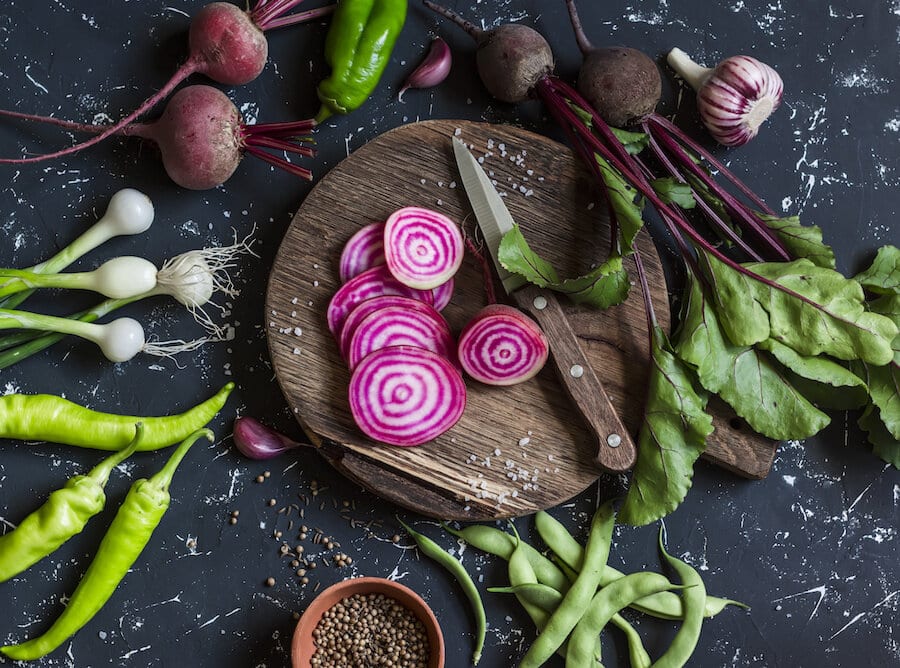Last Updated on March 22, 2024
What Do Diets Have In Common?
We are constantly inundated with the latest and greatest diets or food trends. All this information can make it difficult to know what we really should be eating. But if we strip away all the hype, we can see that the majority of diets have a couple similar themes; such as eating more vegetables, less refined carbohydrates and minimal sugar. For the best outcomes, we can skip the latest dietary trend and instead focus on incorporating these main principles to improve the quality of our health!
A Bounty of Vegetables, a Bowl of Grains and a Dash of Sugar
To promote optimal health, we need the cells in our body to function as optimally as possible. When we eat vegetables, they are loaded with vitamins and minerals that are essential anti-oxidants for healthy cellular function and the prevention of disease. Green leafy vegetables are rich in Vitamins A, C, K, B, Folate, Calcium and Iron. And, when we add an array of colorful veggies like bell peppers, carrots, cabbage, purple kale, radishes and squash we are eating our daily multi-vitamin. These foods can decrease inflammation to lessen pain, protect our vessels, support our brain and improve our energy level.
On the flip side, cane sugar and high fructose corn syrup is considered to be pro-inflammatory and can damage our cells and vessels, which contributes to dementia, diabetes, high blood pressure and atherosclerosis. Refined carbohydrates, like bread, pasta and crackers increase our blood sugar levels and can have the same impact in our body when consumed in high amounts or on a regular basis.
A 2014 review of studies examining carbohydrates and chronic disease showed that a diet low in refined carbohydrates may offer anti-inflammatory benefits to reduce the risk of type 2-diabetes and heart disease.[1]
How Should I Add These Foods Into My Diet?
- Strive for 2 servings of green leafy vegetables per day. Such as spinach, kale, chard, arugula, mustard greens
- Add 3-5 servings of colorful vegetables per day
- Avoid cane sugar and high fructose corn syrup
- Eat refined carbohydrates no more than 20% of the time. Instead choose intact grains like brown rice, wild rice, Forbidden rice, quinoa, millet, oats and squash
- Choose organic fruits, vegetables and meat whenever possible
- Incorporate healthy fats at every meal like avocados, avocado oil, olive oil, nuts and seeds
- Pay attention to the cooking temperature of oils and store them in a cool, dark cabinet
Ward Off Disease by Looking In Your Refrigerator!
The old saying “you are what you eat” holds true. We now know that quality matters and not all calories are the same. And in order to spark your metabolism and improve the function of all your cells, you need proper nutrition. So, if you want your body to perform at it’s highest level then you need to fuel it with the highest quality foods.
Research is now supporting the benefit of high quality food such as organic, free-range meat and wild caught fish. A study published in 2018, showed that eating a diet high in organic food was associated with a reduced risk of cancer.[2]And not only is the quality of our food important, but how we prepare them as well. Incorporation of healthy fats is essential, but keeping them from spoiling will reduce oxidative damage
CLICK HERE to find our more about how you can optimize your diet and improve your health with Dr. Krebsbach.
[1]Buyken, AE, Goletzke, J, Joslowski, G, Felbick, A, Cheng, G, Herder, C, Brand-Miller, JC. Association between carbohydrate quality and inflammatory markers: systematic review of observational and interventional studies. The American Journal of Clinical Nutrition Am J Clin Nutr. 99(4): 2014;813-33.[2]https://jamanetwork.com/journals/jamainternalmedicine/article-abstract/2707948



Figs are not only delicious but also packed with vital nutrients to support your fitness journey. Incorporating figs into your diet can provide a natural energy boost, aid in muscle recovery, and contribute to overall wellness. So next time you’re looking for a nutritious snack to fuel your workouts, reach for some figs!